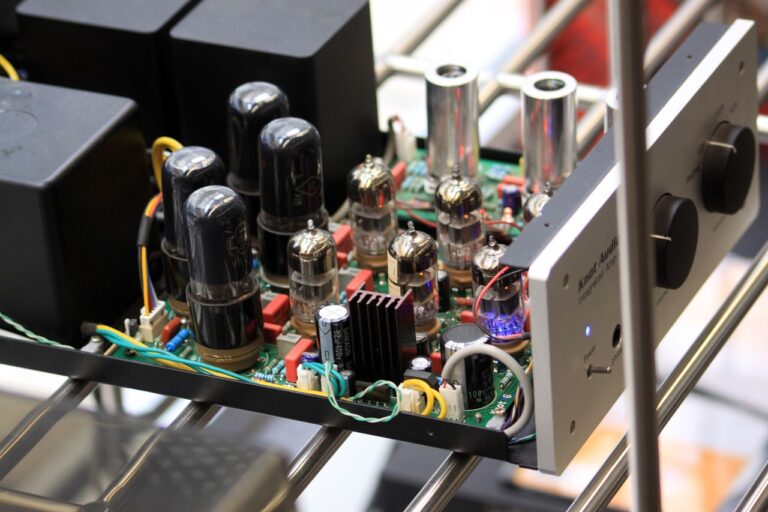In today’s rapidly evolving digital landscape, it is essential for businesses to be mindful of their environmental footprint and their impact on the planet when disposing of old or obsolete electronic devices. Computer recycling through responsible IT Asset Disposition (ITAD) enables organizations to minimize the risk of data breaches, reduce waste, and conserve valuable resources. In this article, we will explore the process of computer recycling, its benefits for businesses and the environment, and how Beyond Surplus, a leading provider of ITAD and recycling services, can help you ensure your electronics are managed responsibly and securely.
By understanding the intricacies of computer recycling, you can make informed decisions about the disposal of your electronic devices, ultimately contributing to a more sustainable and environmentally conscious future for your business and customers alike.
The Process of Computer Recycling
Preparation and Data Security
The first step in computer recycling involves preparing the devices for disposal. This includes ensuring that all sensitive information stored on the computer is securely deleted or destroyed to prevent data breaches or unauthorized access. Methods of data destruction can range from software-based data wiping to physical destruction of hard drives or other storage devices.
Collection and Transportation
Once the data has been securely dealt with, computer recycling providers like Beyond Surplus will collect the devices for processing. This may involve arranging for pickup or shipping to a designated recycling facility, with appropriate care taken to maintain a secure chain of custody throughout the transportation process.
Sorting and Disassembly
Upon arrival at the recycling facility, computers and other electronic devices are sorted and dismantled into their individual components, such as metals, plastics, and electronic parts. This separation process allows for effective recycling of each material type, ensuring maximum efficiency and resource recovery.
Material Processing
The various components obtained from dismantled computers undergo specific recycling processes to reclaim valuable materials. Metals, such as copper, gold, and aluminum, are extracted and sent to specialized facilities for refining. Plastics are shredded, melted, and pelletized for use in manufacturing new products. Electronic components, meanwhile, are processed to recover precious metals and rare earth elements, ensuring that they can be repurposed and reintegrated into the production cycle.
Environmental and Business Benefits of Computer Recycling
Reduced E-Waste and Landfill Impact
One of the most significant benefits of computer recycling is reducing the amount of electronic waste (e-waste) that ends up in landfills. E-waste can contribute to soil, water, and air pollution if not managed correctly and can release hazardous substances, such as lead, mercury, or cadmium, into the environment. By recycling computers, businesses can help minimize the environmental impact of their operations and contribute to a cleaner and greener future.
Conservation of Resources
The recycling of computers and other electronic devices allows for the recovery of valuable materials that can be used in the production of new products. This reduces the demand for raw materials, such as metals, which typically require energy-intensive extraction processes. By recycling computers, businesses can play a role in conserving resources and reducing the overall environmental footprint of the electronics industry.
Economic Benefits and Job Creation
Computer recycling contributes to job creation in the recycling industry and can have a positive impact on local and national economies. The labor-intensive recycling process provides jobs for skilled technicians, drivers, and material sorters, offering economic benefits to both individuals and communities.
Legal Compliance and Reputation Management
Businesses that adhere to computer recycling guidelines can ensure compliance with environmental regulations and avoid potential fines or legal action. Additionally, responsible recycling practices can positively impact your company’s reputation, demonstrating a commitment to sustainability and environmental stewardship to your clients and customers.
Choosing the Right Computer Recycling Partner
To ensure that your computers and electronic devices are properly and securely disposed of while minimizing environmental impact, it is essential to partner with a reputable computer recycling provider. When evaluating potential partners, consider the following factors:
Experience and Knowledge
A reputable computer recycling provider should have extensive experience in the industry, along with a deep understanding of relevant regulations and best practices. Look for organizations with a proven track record, positive testimonials, and a comprehensive knowledge of the recycling process.
Secure Data Destruction
Ensure your recycling partner has stringent security measures in place to handle sensitive data, including certified data wiping, degaussing, or hard drive shredding services. Data security and proper disposal are crucial to protecting your organization and maintaining legal compliance.
Transparency and Reporting
A reputable provider should maintain transparency throughout the recycling process, offering documentation and reporting on the success of your recycling efforts, such as the percentage of materials recycled and a breakdown of device types. This documentation can help your organization monitor its environmental impact and communicate its commitment to sustainability to stakeholders.
Embrace a Greener Future with Computer Recycling
Computer recycling presents a responsible, eco-friendly solution for businesses looking to manage their electronic waste and contribute to a sustainable future. By partnering with an experienced provider like Beyond Surplus, you can ensure that your devices are securely handled and recycled in compliance with environmental regulations. Show your commitment to sustainability, secure your sensitive data, and reduce your organization’s environmental impact through responsible computer recycling.
Get started today by reaching out to Beyond Surplus and exploring their comprehensive ITAD and recycling solutions designed to meet your unique business needs. Choose a brighter, greener future for your organization and the planet by embracing responsible computer recycling practices.


